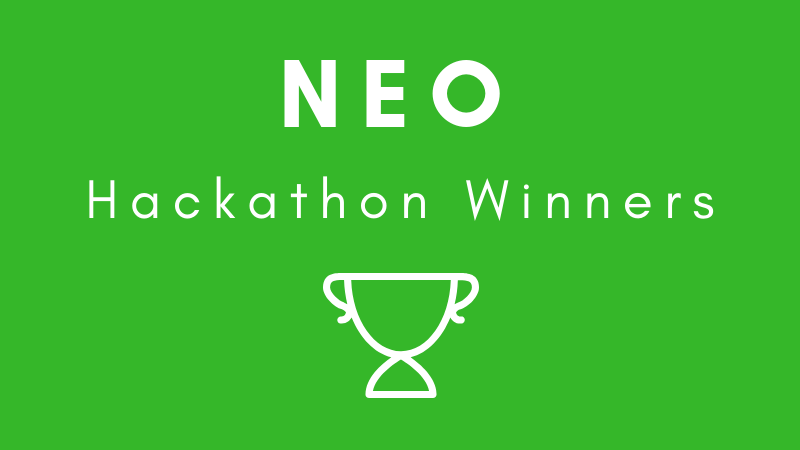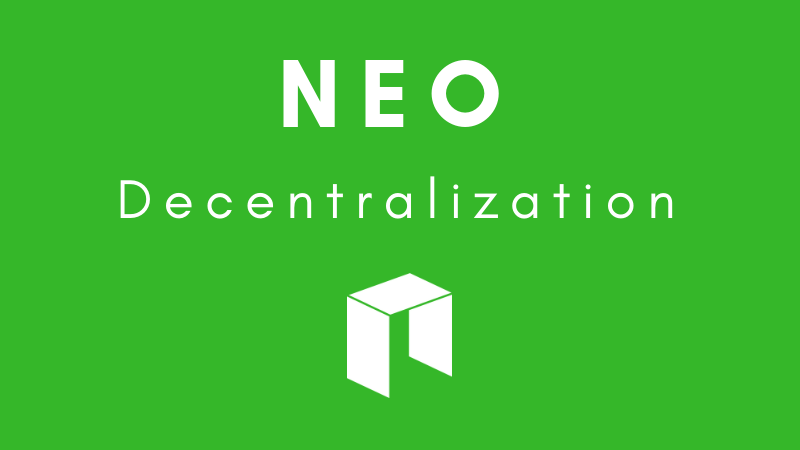
Last month, NEO Global Development (NGD) concluded its hackathon tour across Europe. Stops for the tour included a weekend in Rotterdam and Delft in the Netherlands, Berlin in Germany, and Zürich in Switzerland. The hackathons attracted participants with a variety of professional backgrounds ranging from designers, developers, architects, data analysts, and engineers.
Each hackathon had a unique theme on which participants were to focus their efforts. The Netherlands hackathon focussed on developing decentralized applications (dApp) with Go language. The theme of the Berlin hackathon was building non fungible token (NFT) dApps on the NEO blockchain. Lastly, the Zürich hackathon was oriented around building identity-related dApps on NEO, which was covered by NEO News Today.
To score teams, judges used the following factors: functionality, ease of use, stability, website performance, and interface design.
The Vibe at the Hackathons
When speaking with NEO News Today, Olga Ivanova, of team Partchain from the Berlin hackathon, said “it is amazing how a very warm and a friendly atmosphere can be combined with an intensive work & highly competitive environment.” Though, outreach building up to the event ushered in an equal amount of intrigue.
Prior to the Berlin hackathon, the xNFT team attended a NEO community event in Bulgaria, where Zdravko Georgiev (aka SK Insomnia) showcased the NEO blockchain. This is where Anton Sotirov of Team xNFT said the team “got hooked.” Sotirov went on to say, “we were so excited that we flew from Bulgaria just to participate!”
Once at the event, participants conveyed they were able to find support and assistance from the expertise of NGD and City of Zion (CoZ) representatives. Niels Buekers (a participant at the Netherlands and Zürich hackathons) stated the experts offered “an amazing kickstart in understanding the technology.” Buekers has also written a “How To” on preparing for hackathons.
When inquired about advice to future participants, the hackathon attendee’s almost unanimously conveyed one key sentiment: preparation. Many suggested future participants learn their way around the NEO blockchain tools in advance. Then, as Sotirov said, “start early and hack around to get a grasp of the tech stack.”
Below are the final 17 projects that were awarded by NGD, as well as the deliverables, team list, and GitHub source link.
Rotterdam/Delft Hackathon Results
The Netherlands hackathon was hosted in Rotterdam on Saturday, October 20th, and Delft on Sunday, October 21st. Rules for the competition can be found at the NGD GitHub. The judges for the hackathon included:
- Zeki Erin, TUDelft
- Alexakis Lefteris, KPN
- Anthony de Meulemeester, CoZ
- Peter Lin, NGD R&D
First Place: G-Team
Product: A blockchain based General Data Protection Regulation (GDPR) solution, to better protect user privacy and provide better data solutions.
Team: Niels Buekers and Serge Hendrickx
Second Place: EVERSCORE
Product: Infrastructure to permanently store scores for blockchain-based games onto the chain.
Team: Stefan Ladage and Daniel de Witte
T-Third Place: Blockchain Smarts
Product: Solution to improve the process of publication and review of scientific papers. The project strives to support the global publication of scientific papers, protect ownership, provide a programmed distribution of value, and offer API support for various platforms.
Team: Isaac Nandgavkar, Melicio de Bel, Koenraad DeVos, Garlon Hasham, and Denis Magda
T-Third Place: Hashtag Team
Product: A peer-to-peer market of real-world assets with a built-in escrow system. This system would allow sellers to put items up for sale by creating offers on the blockchain.
Team: Melanie T. Uy, Michiel Doesburg, Karyna Azarian, Andre Reis, and Robert Wessel Blokzijl.
Berlin Hackathon Results
The Berlin hackathon took place on Saturday, October 27th, and Sunday, October 28th. Rules for the competition can be found at the NGD GitHub. The judges for the hackathon included:
- Erik Zhang, NEO
- Sebastian Gajek, Weeve
- Sean Chen, BlaCat
- Peter Lin, NEO R&D
First Place: xNFT
Product: A move based game, where each move is equal to the time until the next block. Its characters would be developed on the basis of cross over and mutation (genetics), which can be traded on a marketplace.
Team: Martin Ivanov, Anton Sotirov, and Bogdan Alov.
Second Place: Partchain
Product: A decentralized supply chain platform for tracking parts of an aircraft.
Team: Stoyan Vlahovski, Olga Ivanova, Hadi Adineh, Alessandro Surace, Matthias Burkert, Aswin Pyakurel, Jorge Nole, Mayank Sharma, and Timothy LeBon.
T-Third Place: NHB
Product: A dApp to store information about different car parts, to be used by car manufacturers, service stations, end users, etc.
Team: Juan Senoret, Fouad Soultana, Gökcen Bas, Selim Erünkut, Benjamin Harmat, Nicolas Guerrero Tello, Christoph Klocker, and Habiel Abromand.
T-Third Place: NEO Home
Product: A user-friendly application to manage NFT assets.
Team: Daniel Montano, Julian Raupach, Daniel Schrader, and Andreas Lempik.
T-Third Place: Put in Order
Product: A government procurement system powered by the NEO blockchain to enable participation in corruption-proof tenders all around the world.
Team: Victor Kostyuk, Denis Chernyakov, Andrei Ktitarev, and Daniel Baran.
T-Third Place: Smart.News
Product: Incentivized verification system to produce a higher quality content of user-verified news, where voters of verified news sources are compensated.
Team: Gregoire le Jeune, Veit Wehner, Gesa Schneider, Frances Pak, Jana Bulkin, and Frank Winkler.
T-Third Place: Team Neo
Product: A social micro-payment system using the NFT standard, which aims to serve as a peer-to-peer blockchain credit system.
Team: Stephan Fischer, Emmanuel Tobey, and Martin Janda.
Mastery Prize: Smart Realm
Product: A land registry solution to transfer real estate deeds. This is done by assigning an NFT asset to be used for smart contract transactions, removing the lengthy process of manual land registry transactions.
Team: Samuel Ouko, Marcelo, Ghasem Yazdani, and Varun Manthapuri.
Zürich Hackathon Results
The Zürich hackathon took place on Saturday, October 27th, and Sunday, October 28th. Rules for the competition can be found at the NGD GitHub. The judges for the hackathon included:
- Erik Zhang, NEO
- Peter Lin, NEO R&D
- Kasimir Blaser, Swisscom Blockchain AG
- Arno Pernthaler, Enterprise Blockchain Advisory
First Place: NeoKey
Product: Authentication and authorization system that allows users to access accounts based on NFT tokens held in their NEO addresses. Similar to using “Login with Facebook/Google” account credentials on websites and traditional applications.
Team: Dominik Schöni and Andreas Gassmann
Second Place: What a Hack
Product: “BlockSelfie,” which utilizes user-taken selfies and the user’s location to verify identity. BlockSelfie aims to offer a fast verification process that’s language agnostic, doesn’t require documentation, and is compatible across all mobile devices.
Team: Mario Columbo, Luke Szkudlarek, Alessandro Allegri, Chris Bernat, and Kamil Tomczak
GitHub Source 1, Source 2, and Source 3
T-Third Place: DeepFake
Product: A platform where people can give consent for their faces and/or voices to be used in deepfake videos, to prevent identities being ‘stolen’ by video creators.
Team: Niels Buekers and Serge Hendrickx
T-Third Place: UniThree
Product: An ID background check that combines artificial intelligence for face identification, and blockchain to store decentralized data from users around the world.
Team: Daniel Sánchez, David Gutíerrez, Matthias Bärtschi, and Jerónimo López
T-Third Place: City of Zurich
Product: An identity token, which provides necessary KYC/AML information of an individual linked to an asset. To do this, they developed a NEP draft for a decentralized identity standards compatible with real-world centralized systems.
Team: Alessandro Bonanno, Milos Constantini, Michele Frederici, Godefroy Schrago, and Ben Wolf







About The Author: Dylan Grabowski
Dylan is a reformed urban planner with a passion for covering the Neo ecosystem. His objective as a writer for Neo News Today is to report news in an objective, fact-based, non-sensational manner. When not behind a computer screen, he can be found in the mountains rock climbing. Find Dylan on Twitter (@GrabowskiDylan).
More posts by Dylan Grabowski